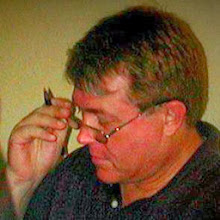 I've spent the weekend trying to get my mind around Ricoeur's Interpretation Theory. The figure at the left summarizes what I have learned.
I've spent the weekend trying to get my mind around Ricoeur's Interpretation Theory. The figure at the left summarizes what I have learned.Historically, exegesis and appropriation have stood in opposition to each other . It has been thought that an epistemological hermeneutic (Schleiermacher) stands in natural opposition to a ontological hermeneutic (Heidegger). Ricoeur attempts bridge the gap between the two in his concept of a hermeneutic arc. Ricoeur accepts the necessity of exegesis as a grounding point for appropriation. This is appropriate because of the nature of text. Text differs from discourse in the sense that the fixation of text in a medium has endowed the text with a life that is separate from the author, obstensive references, and its original audience. Thus, the text is an object for analysis. Second, it is not in acquiescence to some superiority of the natural sciences that calls for an epistemological starting point, but rather the nature of linguistics that provides text with a structural system that can be analyzed.
Appropriation is the ontological grounding of interpretation in lived experience. For Ricoeur (1981) appropriation means "to make one's own what was initially alien" (p. 185). Appropriation "actualizes the meaning of the text for the present reader" (p. 185).
It is the hermeneutic arc that restrains appropriation from becoming simply a subjective interpretation and that prohibits the relativism of all interpretations to same value; which, of course, would mean that no interpretation could be generalized outside of the interpreter.
By proceeding from an epistemological grounding toward an ontological grounding, the rigor of various exegetical and hermeneutic methods are applied to the text that allow an appropriation to emerge that "follows the 'arrow' of meaning [within the text] and endeavors to 'think in accordance with it'" (p. 193). The callouts above the arch: intertexture analysis, metaphor analysis, and plot analysis are the analytic tools I intend to employ the find the "arrows of meaning" that will point me through the text to new new understandings about organizational leadership and new self-understanding.
Reference
Ricoeur, P. (1981). Appropriation (J. B. Thompson, Trans.). In J. B. Thompson (Ed.), Paul Ricoeur hermeneutics and the human sciences: Essays on language, action, and interpretation (pp. 182-193). New York: Cambridge University Press.


